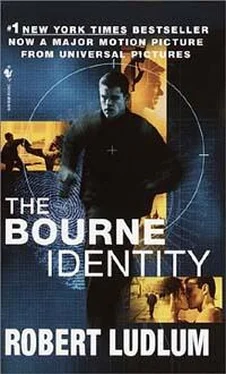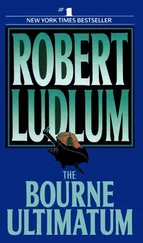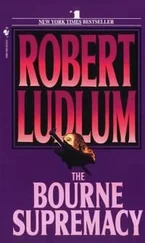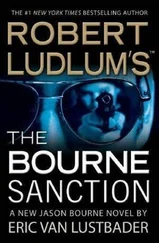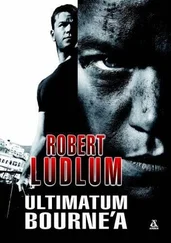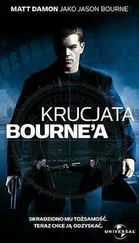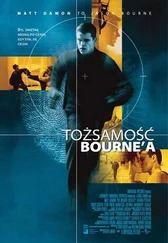—Delta
Jason dropped the note on the desk and walked over to the dead woman. The alcohol was dry, the swollen throat prepared. He bent down and spread his fingers, placing his hands where another’s had been placed.
Madness.
Early light broke over the spires of the church in Levallois Perret in northwest Paris, the March morning cold, the night rain replaced by mist. A few old women, returning to their flats from all-night cleaning shifts in the city proper, trudged in and out of the bronze doors, holding railings and prayer books, devotions about to begin or finished with, precious sleep to follow before the drudgery of surviving the daylight hours. Along with the old women were shabbily dressed men—most also old, others pathetically young—holding overcoats together, seeking the warmth of the church, these clutching bottles in their pockets, precious oblivion extended, another day to survive.
One old man, however, did not float in the trancelike movements of the others. He was an old man in a hurry. There was reluctance—even fear, perhaps—in his lined, sallow face, but no hesitation in his progress up the steps and through the doors, past the flickering candles and down the far left aisle of the church. It was an odd hour for a worshiper to seek confession; nevertheless this old beggar went directly to the first booth, parted the curtain and slipped inside.
“Angelus Domini.”
“Did you bring it?” the whisper demanded, the priestly silhouette behind the curtain trembling with rage.
“Yes. He thrust it in my hand like a man in a stupor, weeping, telling me to get out. He’s burned Cain’s note to him and says he’ll deny everything if a single word is ever mentioned.” The old man shoved the pages of writing paper under the curtain.
“He used her stationery—” The assassin’s whisper broke, a silhouetted hand brought to a silhouetted head, a muted cry of anguish now heard behind the curtain.
“I urge you to remember, Carlos,” pleaded the beggar. “The messenger is not responsible for the news he bears. I could have refused to hear it, refused to bring it to you.”
“How? Why? …”
“Lavier. He followed her to Parc Monceau, then both of them to the church. I saw him in Neuilly-sur-Seine when I was your point. I told you that.”
“I know. But why? He could have used her in a hundred different ways! Against me! Why this?”
“It’s in his note. He’s gone mad. He was pushed too far, Carlos. It happens; I’ve seen it happen. A man on a double-entry, his source-controls taken out; he has no one to confirm his initial assignment. Both sides want his corpse. He’s stretched to the point where he may not even know who he is any longer.”
“He knows …” The whisper was drawn out in quiet fury. “By signing the name Delta, he’s telling me he knows. We both know where it comes from, where he comes from.” The beggar paused. “If that’s true, then he’s still dangerous to you. He’s right. Washington won’t touch him. It may not want to acknowledge him, but it will call off its hangmen. It may even be forced to grant him a privilege or two in return for his silence.”
“The papers he speaks of?” asked the assassin.
“Yes. In the old days—in Berlin, Prague, Vienna—they were called ‘final payments.’ Bourne uses ‘final protection,’ a minor variance. They were papers drawn up between a primary source-control and the infiltrator, to be used in the event the strategy collapsed, the primary killed, no other avenues open to the agent. It was not something you would have studied in Novgorod; the Soviets had no such accommodations. Soviet defectors, however, insisted upon them.”
“They were incriminating, then?”
“They had to be to some degree. Generally in the area of who was manipulated. Embarrassment is always to be avoided; careers are destroyed by embarrassment. But then, I don’t have to tell you that. You’ve used the technique brilliantly.”
“‘Seventy-one streets in the jungle …’” said Carlos, reading from the paper in his hand, an icelike calm imposed on his whisper. “‘A jungle as dense as Tam Quan.’ … This time the execution will take place as scheduled. Jason Bourne will not leave this Tam Quan alive. By any other name, Cain will be dead, and Delta will die for what he’s done. Angélique—you have my word.” The incantation stopped, the assassin’s mind racing to the practical. “Did Villiers have any idea when Bourne left his house?”
“He didn’t know. I told you, he was barely lucid, in as much a state of shock as with his telephone call.”
“It doesn’t matter. The first flights to the United States began within the past hour. He’ll be on one. I’ll be in New York with him, and I won’t miss this time. My knife will be waiting, its blade a razor. I’ll peel his face away; the Americans will have their Cain without a face! Then they can give this Bourne, this Delta, whatever name they care to.”
The blue-striped telephone rang on Alexander Conklin’s desk. Its bell was quiet, the understated sound lending an eerie emphasis. The blue-striped telephone was Conklin’s direct line to the computer rooms and data banks. There was no one in the office to take the call.
The Central Intelligence executive suddenly rushed limping through the door, unused to the cane provided him by G-2, SHAPE, Brussels, last night when he had commandeered a military transport to Andrews Field, Maryland. He threw the cane angrily across the room as he lurched for the phone.
His eyes were bloodshot from lack of sleep, his breath short; the man responsible for the dissolution of Treadstone was exhausted. He had been in scrambler-communication with a dozen branches of clandestine operations—in Washington and overseas—trying to undo the insanity of the past twenty-four hours. He had spread every scrap of information he could cull from the files to every post in Europe, placed agents in the Paris-London-Amsterdam axis on alert. Bourne was alive and dangerous; he had tried to kill his D.C. control; he could be anywhere within ten hours of Paris. All airports and train stations were to be covered, all underground networks activated. Find him! Kill him!
“Yes?” Conklin braced himself against the desk and picked up the phone.
“This is Computer Dock 12,” said the male voice efficiently. “We may have something. At least, State doesn’t have any listing on it.”
“What, for Christ’s sake?”
“The name you gave us four hours ago. Washburn.”
“What about it?”
“A George P. Washburn was pre-cleared out of Paris and into New York on an Air France flight this morning. Washburn’s a fairly common name; he could be just a businessman with connections, but it was flagged on the readout, and since the status was NATO-diplomatic, we checked with State. They never heard of him. There’s no one named Washburn involved with any ongoing NATO negotiations with the French government from any member nation.”
“Then how the hell was he pre-cleared? Who gave him the diplomatic?”
“We checked back through Paris; it wasn’t easy. Apparently it was an accommodation of the Conseiller Militaire. They’re a quiet bunch.”
“The Conseiller? Where do they get off clearing our people?”
“It doesn’t have to be ‘our’ people or ‘their’ people; it can be anybody. Just a courtesy from the host country, and that was a French carrier. It’s one way to get a decent seat on an overbooked plane. Incidentally, Washburn’s passport wasn’t even U.S. It was British.”
There’s a doctor, an Englishman named Washburn … It was him! It was Delta, and France’s Conseiller had cooperated with him. But why New York? What was in New York for him? And who placed so high in Paris would accommodate Delta? What had he told them? Oh, Christ! How much had he told them?
Читать дальше
